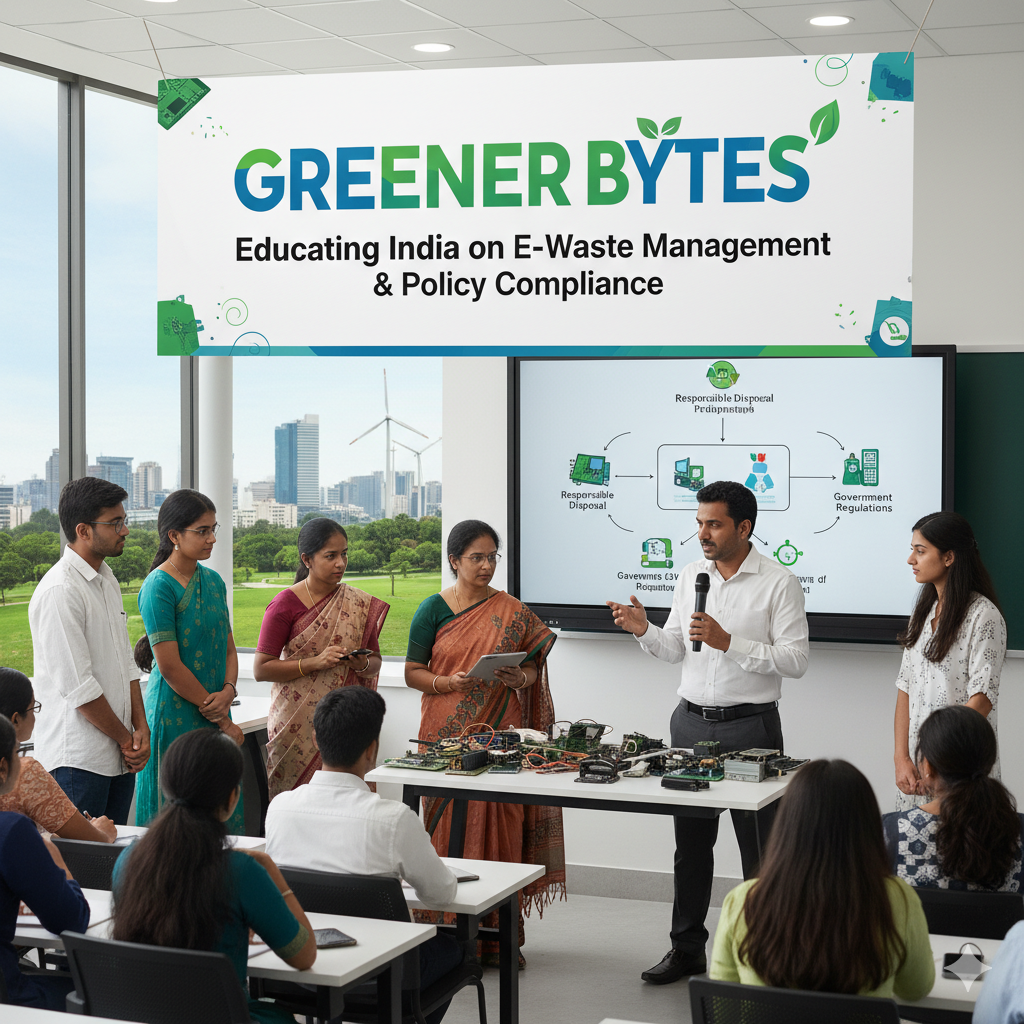E-waste recycling in India is governed by a series of evolving policies and norms that aim to address environmental risks and foster responsible disposal of electronic products. The latest regime focuses on Extended Producer Responsibility (EPR), formalization of recycling, and stricter enforcement, aiming to curb the country’s growing e-waste problem through both regulation and public education.taxtmi+2
Scope of E-Waste in India
India is among the world’s top producers of e-waste, fueled by rapid technological growth, easy access to electronics, and continuous product obsolescence. E-waste contains recoverable materials such as precious metals, but improper recycling, especially in the informal sector, leads to serious health and environmental hazards.meity+1
Key Policies: E-Waste Management Rules
The Ministry of Environment, Forest and Climate Change (MoEFCC) rolled out the E-Waste (Management) Rules in 2016, replacing older guidelines with stricter responsibilities for every participant in the electronic product lifecycle. The cornerstone of these regulations is EPR, making manufacturers, producers, and importers responsible for collection, recycling, and end-of-life management of their goods.ewasterecyclehub+2
In 2022 and subsequently 2025, amendments to these rules increased recycling targets and accountability. Newer rules implement:sansad+1
-
Mandatory registration of producers, recyclers, and refurbishers with the Central Pollution Control Board (CPCB) through a dedicated EPR portal.ewasterecyclehub+1
-
Digital EPR certificates verifying proportional recycling of waste generated compared to goods sold in the prior year.ewasterecyclehub
-
Stricter penalties for non-compliance, ranging from one lakh to one crore rupees per violation.ewasterecyclehub
-
Expansion of recycling responsibility to cover additional categories like medical devices and photovoltaic panels.ewasterecyclehub
Formalization and Enforcement
All e-waste dismantling and recycling units must be officially authorized by State Pollution Control Boards (SPCBs). The CPCB and SPCBs monitor, audit, and encourage the transition of informal recyclers—who still handle much of India’s e-waste without proper safety protocols—toward formal, regulated processes.pib+2
Implementation Norms and Procedures
The regulations apply to manufacturers, wholesalers, retailers, and e-retailers dealing with items such as computers, mobile phones, televisions, and various household appliances. These entities must:indiafilings
-
Safely store e-waste for no more than 180 days.
-
Maintain records of e-waste generated, stored, and disposed of.mppcb.mp+1
-
Ensure that hazardous substances in products do not exceed specified limits.pib
Additionally, the rules specify that micro, small, and medium enterprises (MSMEs) and producers of radioactive e-waste are exempt from certain provisions.indiafilings
Extended Producer Responsibility and Circular Economy
EPR is a pivotal concept that tasks producers with responsibility for the entire lifecycle of their products, including collection and environmentally-sound recycling post-consumption. The 2025 amendments increase annual targets for recycled material, push for digital tracking, and promote a circular economy by incentivizing formal sector engagement and scientific recycling/disposal techniques.drishtiias+2
Challenges and Prospects
Despite the robust legislative framework, practical challenges remain:
-
The informal sector still dominates recycling, lacking safe practices and oversight.taxtmi
-
Compliance, especially among small and unregistered companies, is inconsistent.indiafilings
-
Public awareness on proper e-waste segregation and recycling is limited, highlighting a need for ongoing education and outreach.taxtmi
Conclusion
India’s e-waste recycling landscape is rapidly evolving, guided by progressively stringent policies and a growing push for sustainable, circular practices. Success here hinges on better enforcement, integration of the informal sector into formal processes, and broad-based public education to ensure safe, efficient e-waste management for a greener future.sansad+2
References
-
“Formal and Informal E-Waste Recycling Sector in India,” TaxTMI (March 2025)taxtmi
-
“Ewaste EPR Rules 2025: How to Stay Compliant & Avoid Penalties,” Ewaste Recycle Hub (Aug 2025)ewasterecyclehub
-
“E-Waste (Management) Rules, 2022,” PIB (Dec 2022)pib
-
“E-Waste Management Rules in India,” IndiaFilings (July 2025)indiafilings
-
“E-Waste EPR Portal and Rules,” CPCB/Sansad (2025)sansad
-
“Electronic Waste – E-waste Management Rules 2016,” Byju’s (Nov 2022)byjus
-
“E-Waste Management Rules 2022,” Drishti IAS (Dec 2024)drishtiias


